#HOA leasing management
Text
vimeo
Discover the benefits of outsourcing your HOA leasing management and how it can enhance operational efficiency. This blog covers essential aspects such as cost savings, professional expertise, and streamlined processes. For more comprehensive information, visit this detailed blog, Why You Should Consider Outsourcing Your HOA Leasing Management. Perfect for HOA boards and property managers, this guide helps improve management and resident satisfaction.
0 notes
Text
I haven't seen an ant in my apartment since I bought the ant traps about a month ago but i spent an hour washing/styling my hair and came back to so many. On the counters the walls the window the fucking curtains. What the fuck is happening
#i live in a studio and I'm so paranoid I'm gonna wake up covered in them because obviously i can't move my bed into another room#and i have no idea what changed suddenly for there to be so many#when before i only saw one or two at a time#because of how the traps work I'll give it a few days but if they're not gone i have no qualms about hiring an exterminator#except I'd have to contact my landlord first who'd have to contact management who'd have to contact the fucking hoa#and by the time all that happens my lease would probably be up anyway#my post
2 notes
·
View notes
Link
Property Management Services Indianapolis - Golden Sky Management
You Have To Understand That At A Time, You Can Do One Thing Only. If You Get The Duties Of The Multi-tasking, Then It Can Lead You Towards The Disaster. So, Plan The Things Accordingly And You Just Make Yourself Involved. When You Are Able To Do Those Things In That Way, Then The Property Management Will Be Done Perfectly And It Will Be In Your Time Limitation. https://www.goldenskymanagement.com/
#property management company Indianapolis#residential leasing agent Indianapolis#hoa association management Indianapolis#Indianapolis rent collection company#property financial statement Indianapolis#Indianapolis tenant eviction agency#muncie property management#Indianapolis property management solution#tenant screening Indianapolis
0 notes
Text
I'm gonna talk about my apartment for a bit.
In 2023, I had 40 days before I was expected to move out of my old place because someone purchased it and wanted to move in. I wanted to give myself at least 7 days between the old place and the new one, to make sure I could repaint and get my deposit back. So...I was getting down to the wire, here. Functionally, I had 33 days to find a place, place a deposit, sign a lease, hire movers, and pack all my things.
I went to view an apartment in a part of town I'd never looked at or considered, because it wasn't very central, and it wasn't very walkable. But I was gettin' down to the wire, here, since most places were 60 days notice--not much else was going to come on the market in my time frame. In fact, my options were likely going to get less and less the more time went on.
I saw this apartment, the one I live in now. I walked in and took a deep breath of relief. Because I loved it. It was enormous--by far and away the biggest place I'd looked at in all my searching. It had floor to ceiling windows in the living room and one bedroom. It had a second bedroom. It had a guest bathroom the perfect size for the cats' litter boxes. It was an old, established complex, with a view of a picnic area. 90% owner occupied--because, yeah, this is a condo, not an apartment.
(Or, well, a condominium apartment. Each unit is owned by one person. Some of them are rented out to renters, like me.)
The landlord wanted a second $1,750 deposit for my cats. I said no. She agreed to waive the deposit if I signed a two year lease instead. Done deal.
I walked in the day I got the keys and there was a dead roach in the middle of the empty floor. On its back. In the three weeks since I toured it, signed the lease, paid the deposit, and got my keys, a roach had come in, gotten poisoned, and died.
"What do I do now?" I asked no one, in despair. "I don't know what to do."
It wasn't that I thought the place had a roach problem. It was an omen. And I knew. That moment, I knew.
But I'm a rational human (mostly) person living in the real world (mostly) and I'd signed the papers. I had the keys. My life was packed. And rational humans in the real world don't try to break contracts because of omens, you know?
I cleaned up. The apartment was filthy, actually. I was told it would be cleaned before I moved in, but it wasn't. (I've actually never lived in an apartment that was independently owned that was cleaned upon move-in. Individual landlords don't care, at all, about that. But they will happily remove $500 of your deposit if the place isn't cleaned when you move out, because they're rolling the dice you won't take them to court.)
I moved in. Cleaned the old place. Unpacked the new one. Settled in. I still loved the unit, despite the omen. It truly is cool, and I styled it really nicely with my furniture and decor. It's probably the best job I've done on interior design so far in my life.
But about three weeks after moving in, the construction started, and again: I knew. That dead roach wasn't a dead roach. It was a warning of what was to come.
This complex, managed by an HOA, sold off the picnic area and dog park area, and a developer came storming in to build some new condos. They ripped up every bit of green land around my building. They destroyed the parking lot so I have to drive on gravel now. They created potholes that were, at last count by my neighbor, eighteen inches deep.
I haven't gotten to sleep in past 7am in the last eighteen months. Construction starts every day at 7am. It rattles the windows. I have to go around and tighten the lightbulbs on all my lights in the house every few weeks because the rattling loosens them. Kind of crazy, right? (Crazy as me knowing an omen when I see one?)
The developer is comically evil and the HOA is an almost unsettling stereotype. Any time someone living in my building (one of only two buildings that have to deal with the construction; the rest of the condo property is far enough removed that they have no issues), the HOA dives in front of the developer like, "GET DOWN MR. PRESIDENT!" and claims that the developer is perfect, innocent, and doing everything by-the-book.
(They're not. They've broken so many laws, ordinances, safety codes--)
My landlord knew the construction was coming. She knew I'd lose my parking. She knew I'd lose internet, water, and electricity over and over again as the developer worked. She knew, and she knew she needed me to sign a longer lease, because no one else would move into the property with it torn up this way.
What would have happened if I'd taken that omen for what it was?
I'd already done everything. Signed the lease. Paid the deposit. What could I have done? Beg, I guess, to be let out. Lose the deposit. Move somewhere else. Yeah, I probably could have just lost the deposit. And then I'd be sitting here writing a diary entry about how terrible I am with money, instead.
Probably something like that.
btw, this place doesn't have a roach problem. So we've got that going for us.
6 notes
·
View notes
Text
Deciding Between Renting Out or Selling Your House: Key Considerations

Deciding what to do with your house when it's time to move can be a major decision. Should you sell it and use the proceeds for your next adventure, or keep it as a rental to build long-term wealth?
Many homeowners grapple with this question, and the answer isn't always clear-cut. Whether you're intrigued by the potential rental income or concerned about the responsibilities of being a landlord, there are several factors to weigh.
Let’s explore some crucial questions to help you make the best choice for your situation:
Is Your House Suitable for Renting?
Even if you’re interested in becoming a landlord, your current home might not be the best candidate for renting. Perhaps you're relocating far away, making ongoing maintenance a challenge, or the neighborhood may not be ideal for rental properties. Additionally, your home might require significant repairs before it’s ready to be a rental.
If any of these issues resonate with you, selling might be the more practical choice.
Are You Prepared for the Realities of Landlord Life?
Managing a rental property involves more than just collecting rent. It’s a time-consuming and sometimes challenging role.
For instance, you might receive maintenance requests from tenants at all hours or face the task of repairing damage before a new lease begins. You could also encounter situations where tenants fall behind on payments or break their lease early. Investopedia emphasizes:
"It isn’t difficult to find horror stories of landlords troubled with more headaches than profits. Before deciding to rent, consider talking to other landlords and doing a detailed cost analysis. You might find that selling your home is a better financial decision and less stressful.”
Do You Have a Good Understanding of the Costs Involved?
If you're considering renting out your home to generate extra income, it's important to be aware of the additional expenses you'll need to manage. According to Bank rate:
Mortgage and Property Taxes: You’ll still be responsible for these payments, even if the rent doesn't cover them entirely.
Insurance: Landlord insurance is about 25% more expensive than regular home insurance and is crucial for covering potential damages and liabilities.
Maintenance and Repairs: Budget to spend around 1% of your home's value annually on maintenance and repairs, with higher costs if your home is older.
Finding a Tenant: This involves costs for advertising and possibly background checks.
Vacancies: Any period when the property is unoccupied will result in lost rental income.
Management and HOA Fees: If you hire a property manager, expect to pay around 10% of the rent. Additionally, HOA fees may apply if your property is part of a homeowners' association.
Bottom Line
To sum it all up, selling or renting out your home is a personal decision that depends on your circumstances. Whatever you decide, taking the time to evaluate your options will help you make the best choice for your future. Make sure to weigh the pros and cons carefully and consult with professionals so you feel supported and informed as you make your decision. That’s what we’re here for.
Read more
#renting out vs selling#property decisions#real estate options#renting vs selling#home investment choices#real estate advice#property management
0 notes
Text
Should You Rent Out or Sell Your House?
Should You Rent Out or Sell Your House?
Figuring out what to do with your house when you're ready to move can be a big decision. Should you sell it and use the money for your next adventure, or keep it as a rental to build long-term wealth?
It's a question many homeowners face, and the answer isn't always straightforward. Whether you're curious about the potential income from renting or worried about the responsibilities of being a landlord, there’s a lot to consider.
Let’s walk through some key questions to ask to help you make the best decision for your situation.
Is Your House a Good Fit for Renting?
Even if you're interested in becoming a landlord, your current house might not be ideal for renting. Maybe you're moving far away, so keeping up with the ongoing maintenance would be a hassle, the neighborhood isn't great for rentals, or the house needs significant repairs before you could rent it out.
If any of this sounds like it might apply, selling might be your best option.
Are You Ready for the Realities of Being a Landlord?
Managing a rental property isn't just about collecting rent checks. It's a time-consuming and sometimes challenging job.
For example, you may get calls from tenants at all hours of the day with maintenance requests. Or you may find a tenant causes damage you have to repair before the next lease starts. You may even have to deal with people falling behind on payments or breaking their lease early. Investopedia highlights:
"It isn’t difficult to find horror stories of landlords troubled with more headaches than profits. Before deciding to rent, consider talking to other landlords and doing a detailed cost analysis. You might find that selling your home is a better financial decision and less stressful.”
Do You Have a Good Understanding of What It’ll Cost?
If you're thinking about renting out your home primarily to generate extra income, remember that there are additional costs you’ll want to plan for. As an article from Bankrate explains:
Mortgage and Property Taxes: You still need to pay these expenses, even if the rent doesn't cover all of it.
Insurance: Landlord insurance costs about 25% more than regular home insurance, and it's necessary to cover damages and injuries.
Maintenance and Repairs: Plan to spend at least 1% of the home's value annually, more if the home is older.
Finding a Tenant: This involves advertising costs and potentially paying for background checks.
Vacancies: If the property sits empty between tenants, you'll lose rental income.
Management and HOA Fees: A property manager can ease the burden, but typically charges about 10% of the rent. HOA fees are an additional cost too, if applicable.
Bottom Line
To sum it all up, selling or renting out your home is a personal decision that depends on your circumstances. Whatever you decide, taking the time to evaluate your options will help you make the best choice for your future.
Make sure to weigh the pros and cons carefully and consult with professionals so you feel supported and informed as you make your decision. That’s what we’re here for.
0 notes
Text
Should You Rent Out or Sell Your House?
Blog by KM Realty Group LLC, Chicago, Illinois

When you’re ready to move, figuring out what to do with your house can be a big decision. Should you sell it and use the money for your next adventure, or keep it as a rental to build long-term wealth?
Many homeowners face this question, and the answer isn’t always straightforward. Whether you’re curious about the potential income from renting or worried about the responsibilities of being a landlord, there’s much to consider.
Let’s walk through some key questions to help you make the best decision for your situation.
Is Your House a Good Fit for Renting?
Even if you’re interested in becoming a landlord, your current house might not be ideal for renting. Maybe you’re moving far away, so keeping up with the ongoing maintenance would be a hassle; the neighborhood isn’t great for rentals, or the house needs significant repairs before you can rent it out.
If any of this might apply, selling might be your best option.
Are You Ready for the Realities of Being a Landlord?
Managing a rental property isn’t just about collecting rent checks. It’s a time-consuming and sometimes challenging job.
For example, you may receive calls from tenants at all hours of the day with maintenance requests. You may also find a tenant causing damage you have to repair before the next lease starts. You may even deal with people falling behind on payments or breaking their lease early.
Investopedia highlights:
“It isn’t difficult to find horror stories of landlords troubled with more headaches than profits. Before deciding to rent, consider talking to other landlords and doing a detailed cost analysis. You might find that selling your home is a better financial decision and less stressful.”
Do You Have a Good Understanding of What It’ll Cost?
If you’re thinking about renting out your home primarily to generate extra income, remember that there are additional costs you’ll want to plan for. As an article from Bankrate explains:
Mortgage and Property Taxes: You still need to pay these expenses, even if the rent doesn’t cover them all.
Insurance: Landlord insurance costs about 25% more than regular home insurance, and covering damages and injuries is necessary.
Maintenance and Repairs: Plan to spend at least 1% of the home’s value annually on maintenance and repairs, more if the home is older.
Finding a Tenant: involves advertising costs and paying for background checks.
Vacancies: If the property sits empty between tenants, you’ll lose rental income.
Management and HOA Fees: A property manager can ease the burden but typically charges about 10% of the rent. If applicable, HOA fees are an additional cost.
Bottom Line
To sum it all up, selling or renting out your home is a personal decision that depends on your circumstances. Whatever you decide, evaluating your options will help you make the best choice for your future.
Make sure to weigh the pros and cons carefully and consult with professionals to feel supported and informed as you decide. That’s what we’re here for.
#homeinChicago#homeforsale#Chicagohomes#realestateagent#rentalproperty#sellingyourhome#sellyourhouse#homevalue#houseforsale#realestate
0 notes
Text

Should You Rent Out or Sell Your House?

Figuring out what to do with your house when you're ready to move can be a big decision. Should you sell it and use the money for your next adventure, or keep it as a rental to build long-term wealth?
It's a question many homeowners face, and the answer isn't always straightforward. Whether you're curious about the potential income from renting or worried about the responsibilities of being a landlord, there’s a lot to consider.
Let’s walk through some key questions to ask to help you make the best decision for your situation.
Is Your House a Good Fit for Renting?
Even if you're interested in becoming a landlord, your current house might not be ideal for renting. Maybe you're moving far away, so keeping up with the ongoing maintenance would be a hassle, the neighborhood isn't great for rentals, or the house needs significant repairs before you could rent it out.
If any of this sounds like it might apply, selling might be your best option.
Are You Ready for the Realities of Being a Landlord?
Managing a rental property isn't just about collecting rent checks. It's a time-consuming and sometimes challenging job.
For example, you may get calls from tenants at all hours of the day with maintenance requests. Or you may find a tenant causes damage you have to repair before the next lease starts. You may even have to deal with people falling behind on payments or breaking their lease early. Investopedia highlights:
"It isn’t difficult to find horror stories of landlords troubled with more headaches than profits. Before deciding to rent, consider talking to other landlords and doing a detailed cost analysis. You might find that selling your home is a better financial decision and less stressful.”
Do You Have a Good Understanding of What It’ll Cost?
If you're thinking about renting out your home primarily to generate extra income, remember that there are additional costs you’ll want to plan for. As an article from Bankrate explains:
Mortgage and Property Taxes: You still need to pay these expenses, even if the rent doesn't cover all of it.
Insurance: Landlord insurance costs about 25% more than regular home insurance, and it's necessary to cover damages and injuries.
Maintenance and Repairs: Plan to spend at least 1% of the home's value annually, more if the home is older.
Finding a Tenant: This involves advertising costs and potentially paying for background checks.
Vacancies: If the property sits empty between tenants, you'll lose rental income.
Management and HOA Fees: A property manager can ease the burden, but typically charges about 10% of the rent. HOA fees are an additional cost too, if applicable.
Bottom Line
To sum it all up, selling or renting out your home is a personal decision that depends on your circumstances. Whatever you decide, taking the time to evaluate your options will help you make the best choice for your future.
Make sure to weigh the pros and cons carefully and consult with professionals so you feel supported and informed as you make your decision. That’s what we’re here for.
0 notes
Text
youtube
Owning rental properties in Honolulu can be a lucrative investment, but managing them can often feel like a full-time job. From handling repairs and tenant issues to ensuring compliance with local regulations, the tasks can quickly become overwhelming. That's where Neal Fineman Property Management comes in. As a premier property management company in Honolulu, HI, we offer comprehensive property management services designed to make your life as a property owner easier and more profitable.
Our Comprehensive Services
· Property Renting or Leasing
Finding the right tenants is crucial to the success of your rental property. Our home rental company utilize effective marketing strategies to attract qualified tenants and minimize vacancy periods. Our rigorous tenant screening process ensures that your property is rented to responsible and reliable individuals.
· Accounting and Rent Collection
Managing finances is a critical aspect of property management. Our team handles all aspects of accounting and rent collection, ensuring timely payments and accurate financial records. Our mobile-friendly online payment system makes it easy for tenants to pay rent on time, reducing the likelihood of late payments.
· Marketing and Tenant Screening
Effective marketing is essential to attract potential tenants. We use a variety of marketing channels to reach a wide audience and showcase your property. Once we receive applications, our thorough tenant screening process includes background checks, credit checks, and reference verification to ensure we find the best tenants for your property.
· 24/7 Maintenance Support
Maintenance issues can arise at any time, and we are here to handle them promptly. Our 24/7 support for maintenance calls ensures that your property is well-maintained and any issues are addressed quickly. This not only keeps your tenants happy but also helps maintain the value of your property.
· Rule Enforcement and Inspection
Ensuring that tenants comply with property rules is essential to maintaining a harmonious living environment. We conduct regular inspections and enforce rules to ensure your property remains in excellent condition. Our proactive approach helps prevent potential issues and keeps your property in top shape.
· Vendor and HOA Bill Payments
Managing payments to vendors and Homeowners Associations (HOAs) can be time-consuming. We handle all bill payments for vendors, HOAs, etc., ensuring that your property remains in good standing and that all necessary services are provided without interruption.
· Vacation Rental Management
Managing vacation rentals requires a different approach than long-term rentals. Our vacation rental management services include marketing your property on popular vacation rental platforms, managing bookings, and ensuring that your property is clean and well-maintained for each guest.
· Advanced Technology
We leverage advanced technology to streamline our property management processes. Our mobile-friendly online payment system makes it easy for tenants to pay rent, while our property management software allows us to keep accurate records and provide detailed financial reports to property owners.
Maximize Your Investment with Neal Fineman Property Management
Whether you're a seasoned investor or just starting in the real estate market, partnering with a professional rental management company can significantly enhance your investment's profitability. Here are some of the ways Neal Fineman Property Management can help you maximize your investment:
· Shorter Vacancies and Qualified Tenants
Our effective marketing strategies and thorough tenant screening process ensure that your property is occupied by responsible tenants who pay rent on time and take care of your property. This results in shorter vacancy periods and a steady rental income.
· Affordable Maintenance
Regular maintenance is crucial to preserving your property's value. Our network of trusted vendors allows us to provide high-quality maintenance services at competitive prices. We handle all maintenance requests promptly, ensuring that your property remains in excellent condition and your tenants are satisfied.
· Stress-Free Management
Managing a rental property involves a lot of moving parts, from handling tenant complaints to ensuring compliance with local regulations. Our experienced team takes care of all these tasks, allowing you to enjoy the benefits of property ownership without the stress.
CONTACT US:
If you're a property owner and looking for a reliable rental management company in Honolulu, HI, look no further than Neal Fineman Property Management. Our comprehensive real estate management services are designed to make your life easier and your investment more profitable. Contact us today to learn more about how we can help you manage your property effectively and efficiently.
Neal Fineman Property Management
949 McCully St., Ste 11
Honolulu, HI 96826
(808) 353-4732
FIND US ONLINE:
Visit Our Website: https://www.nfpmteam.com/
Location (Google Maps): https://www.google.com/maps?cid=6321377292926966718
Facebook: https://www.facebook.com/nfpmteam
LinkedIn: https://www.linkedin.com/company/neal-fineman-&-associates-property-management
Pinterest: https://pinterest.com/nfpmteam/
Yelp: https://www.yelp.com/biz/neal-fineman-and-associates-property-management-honolulu
Manta: https://www.manta.com/c/m1wr7g1/neal-fineman-property-management
Home8: https://www.home8.org/HI/Honolulu/Neal-Fineman-Property-Management-Honolulu/
Muvzu: https://muvzu.com/home-pros/neal-fineman-property-management
Waze (Driving Directions): https://www.waze.com/en/live-map/directions/us/hi/honolulu/neal-fineman-property-management?place=ChIJZe_pqZNtAHwRvtsh5CcLulc
0 notes
Text
Experience the power of effective HOA Lease Monitoring in Florida. They offer comprehensive solutions to ensure a harmonious neighborhood while adhering to all lease stipulations. Trust them to bring balance and order to your community. Read now to learn more.
0 notes
Photo
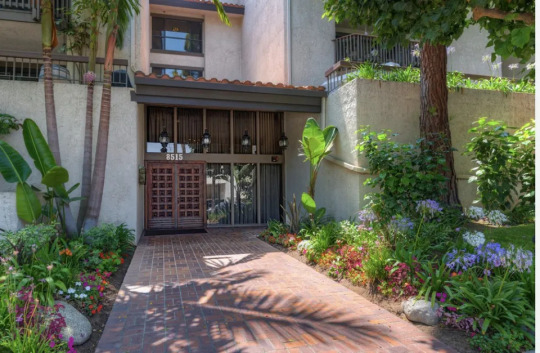
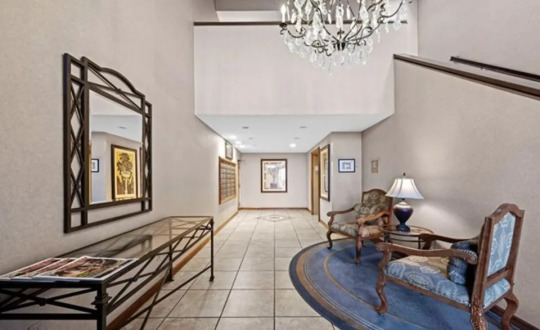
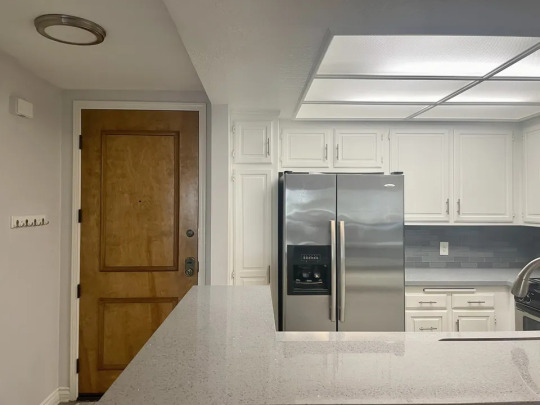
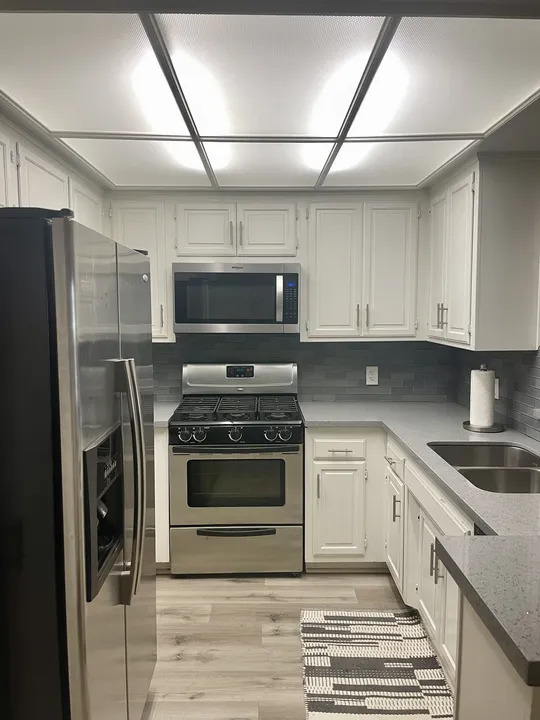
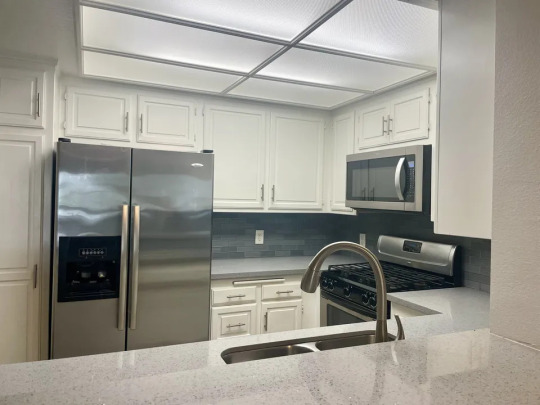
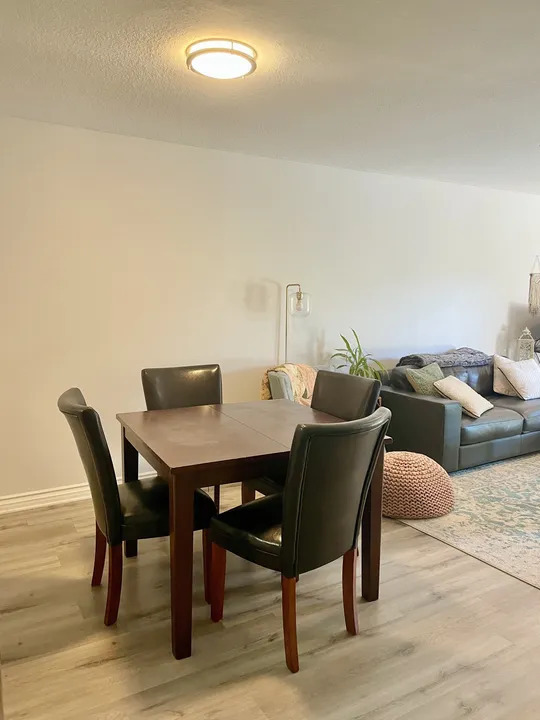
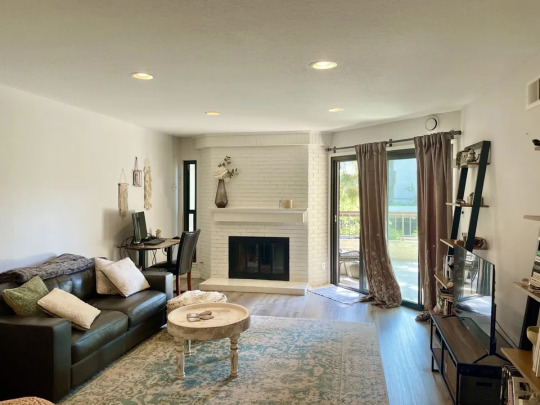
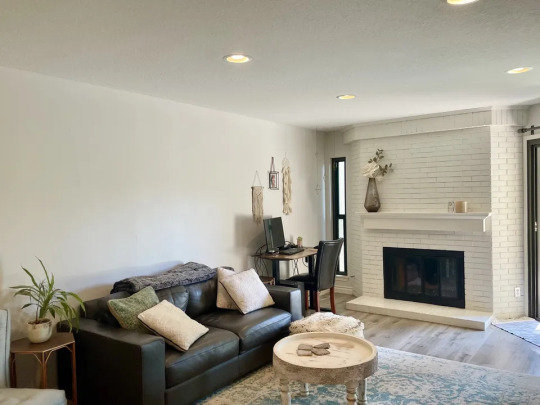
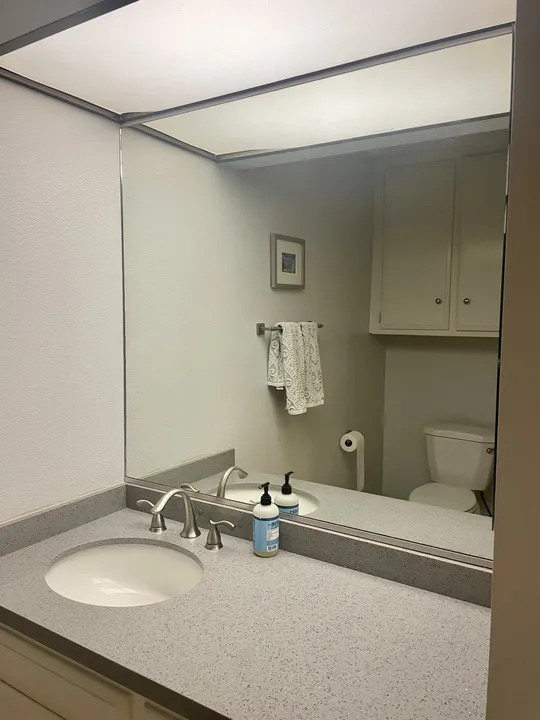

Spacious 2nd floor 1bd/1.5ba condominium in the highly sought-after Villas Del Rey complex of Playa Del Rey. This refreshed and bright unit boasts an open floor plan and abundant natural light throughout. The living room/dining area is perfect for entertaining opening out to a spacious balcony, with the dining adjacent to the kitchen and breakfast bar. The bedroom includes an en-suite bathroom & walk-in closet. Enjoy central AC/heat and an in-unit washer & dryer. This resort-like complex is located less than 1 mile to the ocean and offers residents numerous amenities- including a swimming pool, 2 hot tubs, tennis courts, clubhouse, workout room, sauna and gated parking. Enjoy the Playa Del Rey lifestyle in this captivating residence. 1 year lease. No smoking and no pets allowed. 2 car tandem parking spot in gated garage is provided. Guest parking is available upon request with VDR property manager. No hanging items or hanging lights allowed on balcony per HOA rules. Is not pet friendly. Date Available: Jun 1st 2024. $3, 100/month rent. $3, 600 security deposit required. Please submit the form on this page or contact Noelle W. to learn more._______________8515 Falmouth Ave_______________Los Angeles______________________________3100$
0 notes
Text
The Most Popular Property Types & What You Need To Know About Them
In the big landscape of real estate, navigating the different property types can feel like walking through a maze of options. Whether you're a seasoned investor or a first-time homebuyer, understanding the various property types and their nuances is essential for making informed decisions. From cozy apartments to sprawling estates, each property type comes with its own set of characteristics, advantages, and considerations. So, let's take a look at the most popular property types and what you need to know about them.
The Most Popular Property Types & What You Need To Know About Them
Single-Family Homes
Single-family homes are perhaps the most quintessential property type, typically consisting of one unit intended for one family. These homes offer privacy, independence, and the freedom to customize both the interior and exterior spaces according to your preferences. They are often favored by families seeking stability and a sense of community. However, single-family homes also come with responsibilities such as maintenance and upkeep of the property.
Condominiums
Condos are individual units within a larger complex or building, where owners typically share common areas such as hallways, elevators, and amenities like swimming pools or gyms. Condo living often appeals to individuals seeking a low-maintenance lifestyle with access to shared amenities and community features. However, condo ownership may involve paying monthly homeowners' association (HOA) fees and abiding by certain rules and regulations set by the association.
Townhouses
Townhouses are multi-level homes that share walls with neighboring units, offering a blend of single-family home privacy and condominium-style amenities. They are often characterized by their vertical living space and compact footprint, making them an attractive option for urban dwellers or those seeking a balance between space and affordability. Townhouse communities may also have HOA fees and regulations governing shared spaces and exterior maintenance.
Apartments
Apartments are units within multi-unit residential buildings, typically owned by a landlord or property management company and rented out to tenants. Apartment living offers flexibility in terms of lease agreements and minimal maintenance responsibilities for tenants. However, renters may face limitations on customization and may be subject to rental increases or changes in management policies.
Duplexes & Multi-Family Homes
Duplexes are residential buildings divided into two separate units, each with an entrance, kitchen, and living space. Multi-family homes encompass a broader category of properties with more than two units, such as triplexes, quadplexes, or apartment buildings. Investing in duplexes or multi-family homes can provide opportunities for rental income and property appreciation, but it also involves managing multiple tenants and maintaining the property's common areas.
Vacation Homes
Vacation homes are secondary properties purchased primarily for recreational use, such as beach houses, mountain cabins, or lakeside cottages. These properties offer a retreat from everyday life and the potential for rental income when not in use. However, owning a vacation home entails additional expenses such as property management, maintenance, and insurance, as well as considerations regarding location, accessibility, and seasonal demand.
Commercial Properties
Commercial properties include retail spaces, office buildings, industrial warehouses, and mixed-use developments intended for business purposes. Investing in commercial real estate can offer higher potential returns than residential properties but requires careful market analysis, tenant management, and an understanding of zoning regulations. Commercial leases may also involve longer terms and negotiations compared to residential leases.
In Conclusion
Each property type comes with its own set of advantages, considerations, and potential pitfalls. Before diving into the real estate market, it's crucial to assess your financial situation, investment goals, and lifestyle preferences. Conduct thorough research, consult with real estate professionals, and weigh the pros and cons of each property type to make informed decisions aligned with your objectives. By familiarizing yourself with the characteristics and considerations of each property type, you can make sound investment decisions and find the perfect place to call home. Whether you're a homeowner, investor, or renter, the key is to align your choices with your goals and priorities, ensuring a fulfilling and successful real estate journey.
0 notes
Photo

Best Features Of Your Property - Golden Sky Management
To get your property in front of the right prospective tenants, Golden Sky Management does everything possible to spotlight the best features of your property. Hundreds of high-resolution photos are taken of each rental unit to ensure the best possible listing photos; 4K videography equipment is used to shoot listing videos and our teams work closely with each owner to understand any improvements that would attract tenants. https://www.goldenskymanagement.com/newpage
#property management company Indianapolis#residential leasing agent Indianapolis#hoa association management indianapolis#Indianapolis rent collection company#property financial statement Indianapolis#Indianapolis tenant eviction agency#muncie property management
0 notes
Text
[ad_1]
The choice to lease or personal a house is a serious monetary selection that many individuals face sooner or later of their lives. Each choices have their benefits and disadvantages, and weighing them rigorously is essential in making the precise choice to your circumstances. On this article, we'll define the professionals and cons of renting that will help you decide if it's a higher choice than homeownership.
Professionals of Renting:
1. Flexibility: One of many greatest benefits of renting is the pliability it affords. Renting lets you change your residing scenario comparatively simply, whether or not it is because of job adjustments, private preferences, or monetary constraints. You could have the liberty to choose up and transfer when your lease ends, with out the burden of promoting a property or ready for a purchaser.
2. Decrease preliminary prices: Renting usually requires a smaller upfront monetary dedication in comparison with homeownership. When renting, you usually pay a safety deposit and the primary month's lease. However, buying a house requires substantial down fee, closing prices, and doubtlessly different bills like inspections and value determinations.
3. Repairs and upkeep: One other benefit of renting is that the accountability for repairs and upkeep falls on the owner or property administration. If one thing breaks, you possibly can merely contact the property proprietor, and they'll maintain the required repairs. This could doubtlessly prevent a major quantity of money and time.
4. Facilities and services: Rental properties typically include numerous facilities corresponding to a health middle, pool, or communal areas you can get pleasure from with none extra price. Proudly owning a house, particularly in a neighborhood, could require you to pay HOA charges or different prices to entry related facilities.
Cons of Renting:
1. Lack of fairness: One of the important drawbacks of renting is that you're primarily paying another person's mortgage. Not like homeownership, renting doesn't construct fairness, which suggests you aren't investing in an asset that might respect over time. The cash you spend on lease doesn't offer you possession rights or potential revenue from property appreciation.
2. Restricted management and freedom: When you find yourself renting, you're topic to the owner's guidelines and laws. This will prohibit your potential to personalize your residing area, make renovations, and even have pets. Homeownership, however, grants you extra management over your property, supplying you with the liberty to make adjustments and enhancements as you want.
3. Lease will increase and instability: Lease costs will not be mounted and may enhance over time, particularly in high-demand areas. This lack of predictability could make budgeting and long-term planning difficult. Moreover, landlords could select to not renew your lease, forcing you to discover a new place to dwell.
4. No tax advantages: Not like householders, renters do not need the benefit of deducting mortgage curiosity and property taxes from their annual tax returns. These deductions can considerably scale back the general price of homeownership for a lot of people.
In conclusion, the choice to lease or personal a house will depend on numerous components, together with your monetary scenario, way of life, and long-term targets. Renting affords flexibility, decrease upfront prices, and fewer upkeep tasks, nevertheless it comes with limitations and lacks the advantages of homeownership, corresponding to constructing fairness. Assessing these execs and cons will assist you to make an knowledgeable selection and decide what fits your wants and aspirations greatest.
[ad_2]
0 notes
Text
Understanding Property Taxes and Fees in Dubai: What Investors Need to Know

Investing in real estate in Dubai can be a lucrative venture, but it's crucial for investors to understand the various taxes and fees associated with property ownership in the emirate. From registration fees to service charges, there are several financial considerations that investors must take into account when purchasing or leasing property in Dubai. In this blog, we will provide an in-depth overview of the property taxes and fees in Dubai, equipping investors with the knowledge they need to make informed decisions.
Registration Fees and Transfer Fees
When purchasing property in Dubai, investors are required to pay registration fees to the Dubai Land Department (DLD). These fees typically amount to a percentage of the property's purchase price and cover the costs associated with registering the property transaction. Additionally, buyers may be subject to transfer fees, which are payable to the DLD upon the transfer of ownership. It's important for companies such as Mariah Real Estate, Dubai to budget for these fees when planning their property acquisition.
Moreover, investors should be aware of any additional costs associated with property registration, such as mortgage registration fees or fees for obtaining a property valuation report. These fees vary depending on the type and value of the property and should be factored into the overall cost of property acquisition.
Service Charges and Maintenance Fees
In addition to registration fees, property owners in Dubai are responsible for paying service charges and maintenance fees for the upkeep of their properties. These fees are typically associated with residential communities or mixed-use developments and cover expenses such as security services, landscaping, and facility maintenance. The amount of service charges can vary depending on factors such as the size of the property and the amenities provided within the development.
It's essential for investors to carefully review the service charge structure and maintenance fees associated with a property before making a purchase decision. Understanding these costs upfront can help investors assess the overall affordability of owning a property in Dubai and avoid any unexpected financial burdens down the line.
Municipality Fees and Taxes
Property owners in Dubai may also be subject to municipality fees and taxes, which are levied by the local government for various services and amenities. These fees can include sewage fees, waste disposal fees, and housing fees, among others. Additionally, property owners are required to pay an annual property tax, known as the 'housing fee,' which is calculated based on the annual rental value of the property.
Investors should factor these municipality fees and taxes into their financial planning to ensure they are prepared to meet their obligations as property owners in Dubai. Working with a qualified real estate advisor or property management company can help investors navigate the complexities of local taxation and compliance requirements.
Strata Fees and Community Charges
In condominiums and residential communities governed by homeowners' associations (HOAs), property owners are typically required to pay strata fees or community charges to cover the maintenance and management of shared facilities and common areas. These fees contribute to the overall upkeep of the community and may include expenses such as building insurance, elevator maintenance, and community events.
Before purchasing a property in a condominium or gated community, investors should carefully review the strata fee structure and community charges to understand their financial obligations as members of the homeowners' association. It's also advisable to inquire about any special assessments or upcoming capital improvement projects that may impact future fee structures.
Stamp Duty and Land Lease Fees
In addition to registration fees and transfer fees, investors should be aware of stamp duty and land lease fees that may apply to certain types of property transactions in Dubai. Stamp duty is a one-time fee payable upon the execution of property sale contracts, while land lease fees are applicable to properties situated on leased land, such as leasehold properties in certain freehold areas.
Understanding the implications of stamp duty and land lease fees is essential for investors considering property transactions in Dubai. These fees can vary depending on the nature of the transaction and the terms of the lease agreement, so investors should seek professional advice to ensure they fully comprehend their financial obligations.
Escrow Account Requirements
In Dubai's real estate landscape, escrow accounts play a vital role in safeguarding investors' funds, particularly in off-plan property sales. These accounts, regulated by the Dubai Real Estate Regulatory Agency (RERA), ensure that the funds from off-plan property purchases are securely held until the completion of the project. By requiring developers to deposit funds into escrow accounts, Dubai's regulatory framework aims to protect buyers' interests and mitigate the risk of financial loss due to project delays or developer default.
Investors should prioritize verifying the establishment of an escrow account for their chosen project and seek evidence of compliance with RERA regulations. Ensuring that funds are held in escrow provides investors with peace of mind, knowing that their investment is protected until the completion of the development. By adhering to escrow account requirements, investors can mitigate risks and enhance transparency in their real estate transactions.
Comprehending the intricacies of property taxes and fees is paramount for investors aiming to thrive in Dubai's real estate market. From registration fees to annual service charges and municipality fees, navigating the financial aspects of property ownership demands meticulous planning and thorough due diligence. By acquainting themselves with the relevant taxes, fees, and regulatory requirements, investors can make well-informed decisions and optimize their returns in Dubai's dynamic property landscape. With transparency, diligence, and strategic planning, investors can capitalize on the myriad opportunities offered by Dubai's vibrant real estate market, securing long-term prosperity and growth in their investment endeavors.
1 note
·
View note